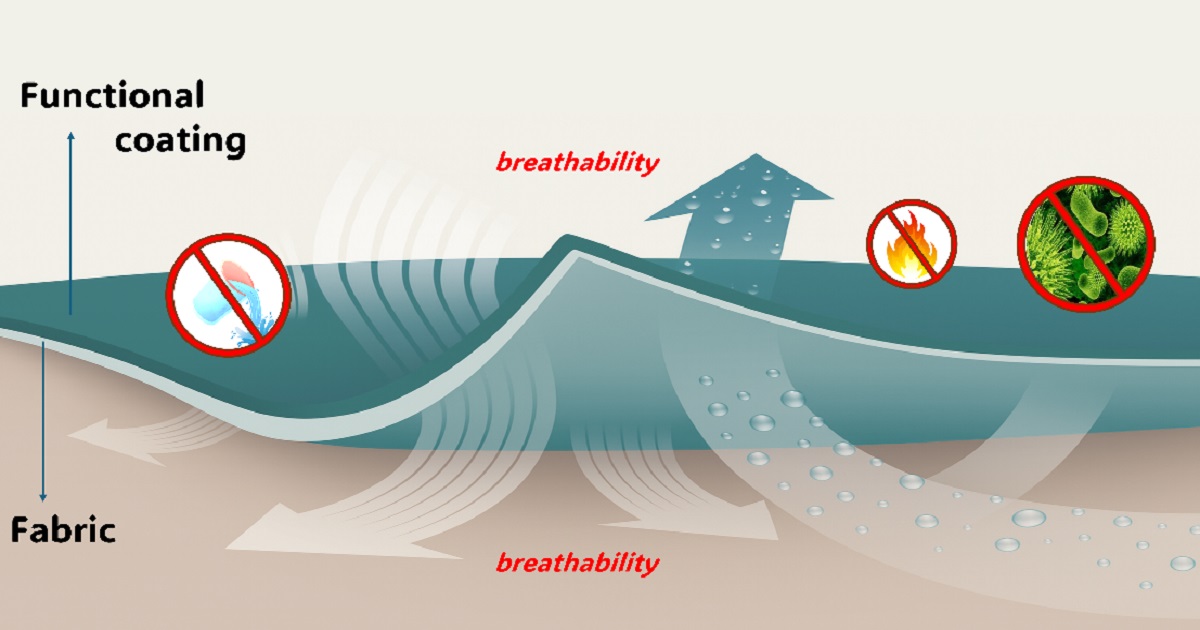- 2.8Impact Factor
- 5.4CiteScore
- 15 daysTime to First Decision
Biodegradable and Bio-Based Coatings for Functional Textiles
This special issue belongs to the section “Bioactive Coatings and Biointerfaces“.
Special Issue Information
Dear Colleagues,
Sustainable innovation has become a key driver reshaping the global textile industry, which has long faced challenges related to its high resource consumption and environmental impact. In this context, biodegradable and bio-based coatings for functional textiles represent a strategic frontier integrating renewable raw materials, advanced functionalities, and environmentally responsible end-of-life behavior.
These coatings, derived from natural and renewable sources such as polysaccharides, proteins, and biopolyesters, offer a range of enhanced properties—including antimicrobial activity, UV protection, and moisture regulation—while reducing the reliance on fossil-derived inputs and promoting circular design principles. Their application responds to the growing regulatory pressure and consumer demand for eco-conscious materials, positioning them as valuable tools for transforming textile production into a more competitive and sustainable system.
This Special Issue will bring together recent scientific and technological advances in the development, characterization, and application of biodegradable and bio-based coatings in textiles. This collection aims to promote innovation in textile finishing, support the transition toward more resilient, low-impact textile systems aligned with the goals of a circular economy, and provide a comprehensive overview of recent advances in the development, characterization, and application of biodegradable and bio-based coatings for functional textiles. Emphasis will be placed on sustainable approaches that integrate renewable raw materials and environmentally friendly processing techniques to create high-performance textiles with added functionalities, such as antimicrobial activity, UV protection, moisture regulation, and the controlled release of active compounds.
For this Special Issue, we welcome the submission of original research articles, reviews, and short communications addressing, but not limited to, the following topics:
- The development and formulation of bio-based and biodegradable coatings from natural or renewable sources;
- The functionalization of textiles with sustainable coatings for enhanced performance;
- Processing techniques for coating application;
- The physicochemical and mechanical characterization of coated textiles;
- The durability, washability, and biodegradation behavior of bio-coated textiles;
- Life cycle assessment (LCA) for bio-based textile coatings and regulatory perspectives on and environmental impacts of these coatings;
- Applications in healthcare, sportswear, packaging, smart textiles, and protective clothing.
We encourage contributions from researchers in the fields of material and environmental science, textile engineering, chemistry, and biotechnology that aim to support sustainable innovation in the textile industry.
We look forward to receiving your contributions.
Prof. Dr. Ana Paula Serafini Immich
Prof. Dr. Carlos Rafael Silva De Oliveira
Prof. Dr. Catia Rosana Lange De Aguiar
Guest Editors
Manuscript Submission Information
Manuscripts should be submitted online at www.mdpi.com by registering and logging in to this website. Once you are registered, click here to go to the submission form. Manuscripts can be submitted until the deadline. All submissions that pass pre-check are peer-reviewed. Accepted papers will be published continuously in the journal (as soon as accepted) and will be listed together on the special issue website. Research articles, review articles as well as short communications are invited. For planned papers, a title and short abstract (about 250 words) can be sent to the Editorial Office for assessment.
Submitted manuscripts should not have been published previously, nor be under consideration for publication elsewhere (except conference proceedings papers). All manuscripts are thoroughly refereed through a single-blind peer-review process. A guide for authors and other relevant information for submission of manuscripts is available on the Instructions for Authors page. Coatings is an international peer-reviewed open access monthly journal published by MDPI.
Please visit the Instructions for Authors page before submitting a manuscript. The Article Processing Charge (APC) for publication in this open access journal is 2600 CHF (Swiss Francs). Submitted papers should be well formatted and use good English. Authors may use MDPI's English editing service prior to publication or during author revisions.
Keywords
- coatings
- bio-based
- eco-friendly
- renewable
- biodegradable

Benefits of Publishing in a Special Issue
- Ease of navigation: Grouping papers by topic helps scholars navigate broad scope journals more efficiently.
- Greater discoverability: Special Issues support the reach and impact of scientific research. Articles in Special Issues are more discoverable and cited more frequently.
- Expansion of research network: Special Issues facilitate connections among authors, fostering scientific collaborations.
- External promotion: Articles in Special Issues are often promoted through the journal's social media, increasing their visibility.
- e-Book format: Special Issues with more than 10 articles can be published as dedicated e-books, ensuring wide and rapid dissemination.

